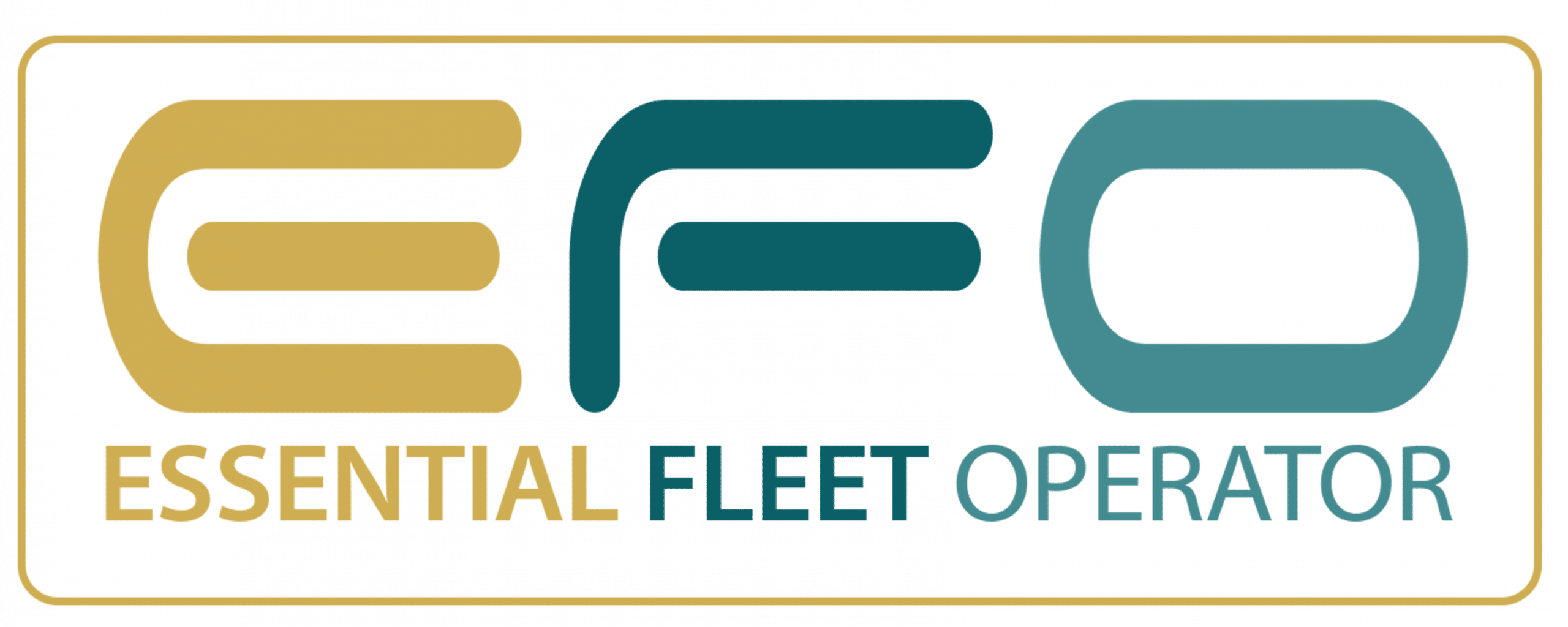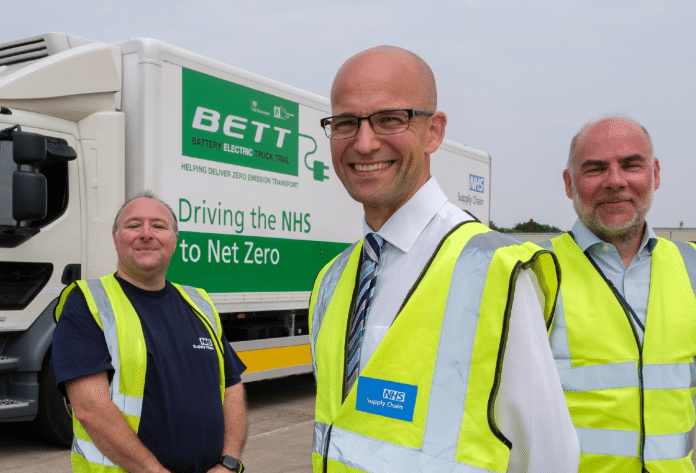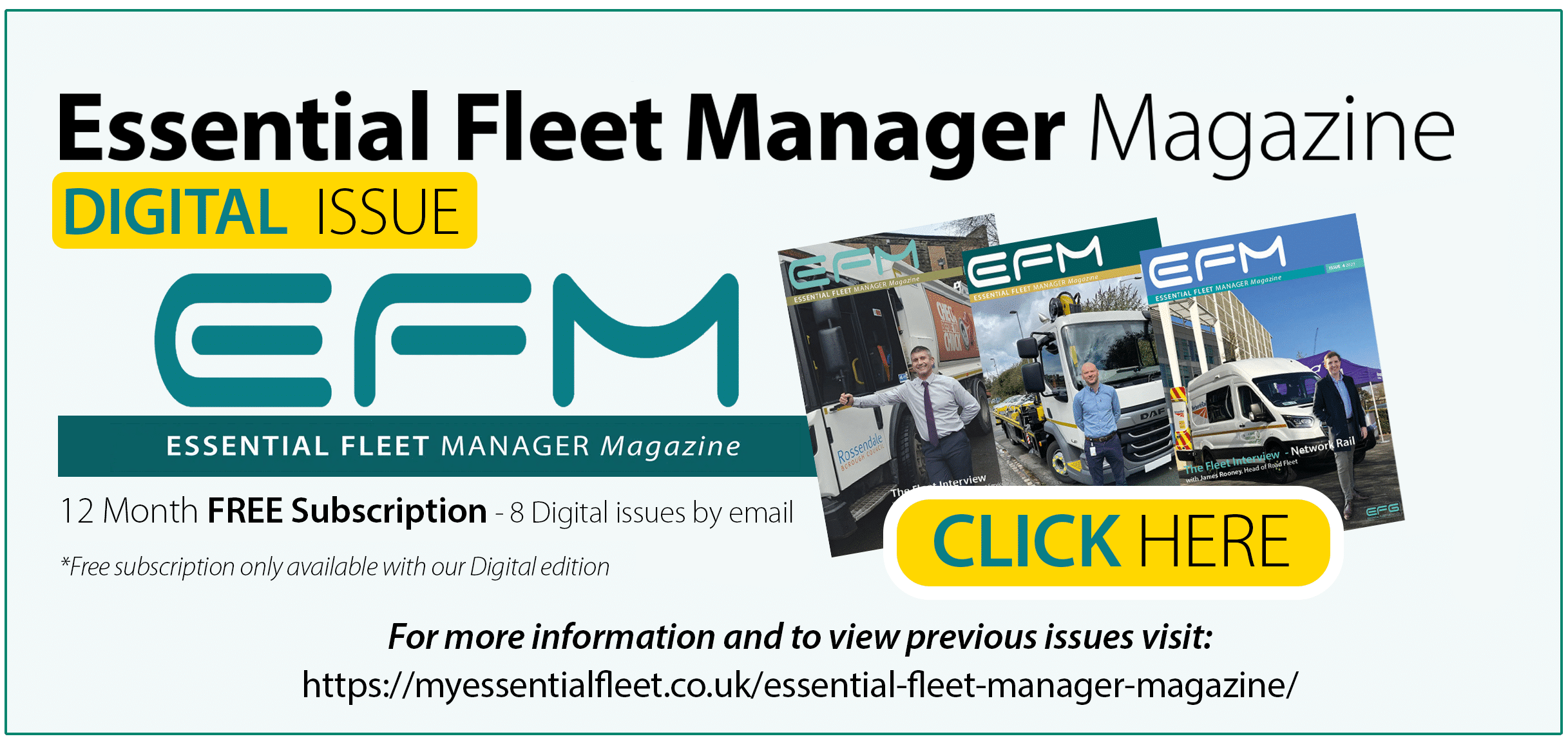Introduction
Keeping the NHS supplied with vital equipment and medical supplies along with food is a huge and highly complex task. With over 129,000 order points within close to 17,000 locations, this is the task undertaken by NHS Supply Chain and is delivered by a diverse fleet of vehicles that range from small vans all the way through to the largest HGVs. As well as ensuring that this operation continues to provide its primary function, NHS Supply Chain is also responsible for significant whole fleet emissions and recognises the requirement to create a strategy that drives towards a sustainable future.
As a major part of this and announced in the late Spring of this year, NHS Supply Chain along with logistics partner, Unipart Logistics, is a key operator taking part in the Department for Transport’s Battery Electric Truck Trial. The project sees 20 DAF LF, 19 Tonne Electric Trucks being operated by NHS Supply Chain, NHS trusts and local authorities, and it focuses on charging infrastructure, repair and maintenance, driver training and total cost of ownership, generating real-time performance data that will provide operational insights across a variety of applications and duty cycles.
With Unipart Logistics, NHS Supply Chain is operating 8 of the 20 trucks under the trial and Essential Fleet Manager spoke with Heidi Barnard, Head of Sustainability about how the project has been progressing, learnings so far and what other steps are being taken across the wider fleet to drive down emissions and work towards Carbon Net Zero and a sustainable future.

Interview
Q: It’s been stated that the NHS aims to be the world’s first Carbon Net Zero health system by 2040. What are the key points and stages within this strategy?
Identifying a route to net zero emissions for a complex system as large as the NHS is incredibly challenging. To understand how and when the NHS could reach net zero, NHS England established an NHS Net Zero Expert Panel, in February 2020, they reviewed nearly 600 pieces of evidence and conducted extensive analysis and modelling.
The objective was to set targets that are as ambitious as possible, whilst remaining realistic; and supported by action and a commitment to monitoring, evaluation and innovation.
This culminated in the publication of the “Delivering a Net Zero National Health Service” report, in October 2020, setting out the aim is to be the world’s first net zero national health service.
It set out two targets:
For the emissions we control directly (the NHS Carbon Footprint), we will reach net zero by 2040, with an ambition to reach an 80% reduction by 2028 to 2032.
For the emissions we can influence (our NHS Carbon Footprint Plus), we will reach net zero by 2045, with an ambition to reach an 80% reduction by 2036 to 2039.
Q: Since the 8 vehicles for the BETT arrived on fleet at your 4 depots, what have been their achievements so far in terms of deliveries and reductions in emissions?
Since their introduction in June 2022 the electric vehicle (EV) fleet has been serving some of the largest hospital trusts in major cities around the country including, Birmingham, Leeds, Sheffield, Nottingham, Derby and Leicester as well as Norfolk and Suffolk.
In that time the EV trucks have completed more than 2,000 deliveries and delivered 360,000 lines of product to hospitals. And avoided 55 tonnes of CO2 emissions.
Q: How does your partnership with Unipart Logistics help provide the flexibility that enables you to take advantage of technological innovations, now and in the future?
Unipart Logistics is evolving its entire fleet as part of its sustainability and carbon reduction commitments. We work closely with Unipart Logistics to provide the direction and support to explore alternative fuel alternatives to diesel powered vehicles when NHS Supply Chain is seeking to replace vehicles. The technology is improving all the time, particularly in relation to range and payload.
Q: How are the charging cycles managed and are there any extra power demands of refrigerated bodies and tailgates?
NHS Supply Chain’s sites operating electric vehicles are fitted with high powered vehicle chargers with an output capability of 180KW. A 19t rigid vehicle can be fully charged in less than two hours. This allows the vehicles to be utilised on both days and through the night operating within our 24 hour transport service.
The vehicles are fitted with carrier refrigerated electric units. Power demand is minimal with around 1% of the vehicles’ battery output being used to maintain temperature and with a switch on/ switch off auto function managing temperature at all times.
Q: Assuming positive outcomes to the trial, how far do you think the use of these vehicles be expanded?
We are pleased with how the EVs are proceeding and will review after the trial has concluded. These EVs are part of a particular project and build programme, and so when considering future EVs, we will need to assess the options available at the time.
Q: How important is it to stay fully engaged with suppliers such as DAF to ensure that you can take advantage of future developments as soon as possible?
Its fundamental to our success, the NHS uses products from more than 80,000 suppliers. With more than 60% of the NHS carbon footprint based within the NHS supply chain, we need the support of every supplier if we are to reach net zero by 2045.
NHS Supply Chain manages relationships with over 1,000 suppliers and our scope covers medical equipment, food, and office supplies.
In October 2021, NHSE approved a roadmap to help suppliers align with our net zero ambition between now and 2030, with the bold ambition by 2030 that “Suppliers will only be able to qualify for NHS contracts if they can demonstrate their progress, through published progress reports and continued carbon emissions reporting through the Evergreen supplier assessment.”
Q: Aside from the BETT, which other technologies and fuel alternatives are you and Unipart Logistics utilising to drive down fleet emissions?
As part of NHS Supply Chain’s light commercial vehicle fleet replacement programme there will be a number of EV 3.5 tonne vans introduced into the network servicing community trusts in the North West.
Unipart Logistics is also trialling hydro treated vegetable oil (HVO) fuel in their core fleet with plans to extend that trial early next year to NHS Supply Chain.
Q: All essential fleet operators are facing huge challenges derived from rising costs and supply chain difficulties. How do you manage and mitigate those challenges to make sure that your aims and objectives remain on-track?
As well as constantly monitoring new and emerging technologies such as hydrogen fuel cell and opportunities to replace diesel fleet in the future there are a number of other initiatives that are in progress. These include:
• Delivery route optimisation and frequency.
• Rapid fleet loading doors at NHS Supply Chain’s regional distribution centres reducing energy use and cost.
• Air curtain installation at NHS Supply Chain’s regional distribution centres reducing energy use and cost.
• Bulk fuel discount purchase and contingency management.
To find out more visit https://www.supplychain.nhs.uk/sustainability/
Watch NHS Supply Chain’s video about their involvement in the EV trial BETT,
visit: https://www.youtube.com/watch?v=FloGbDgfLsE




